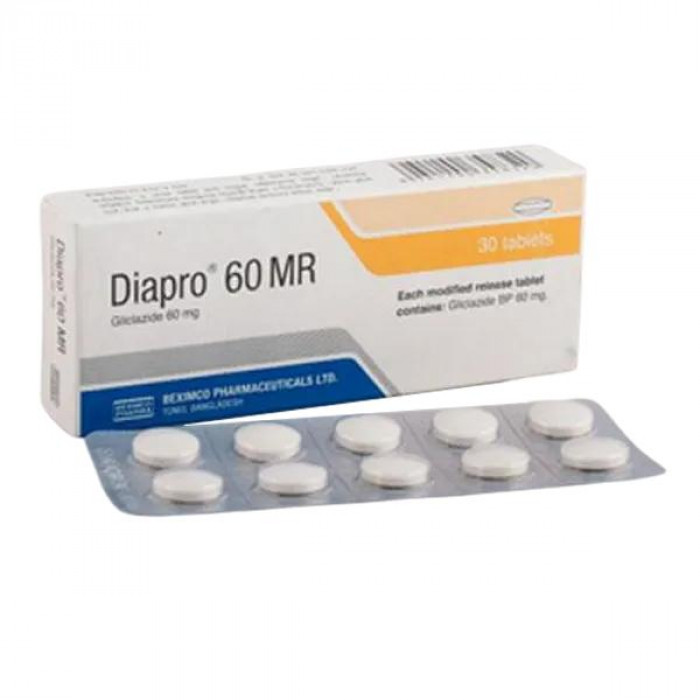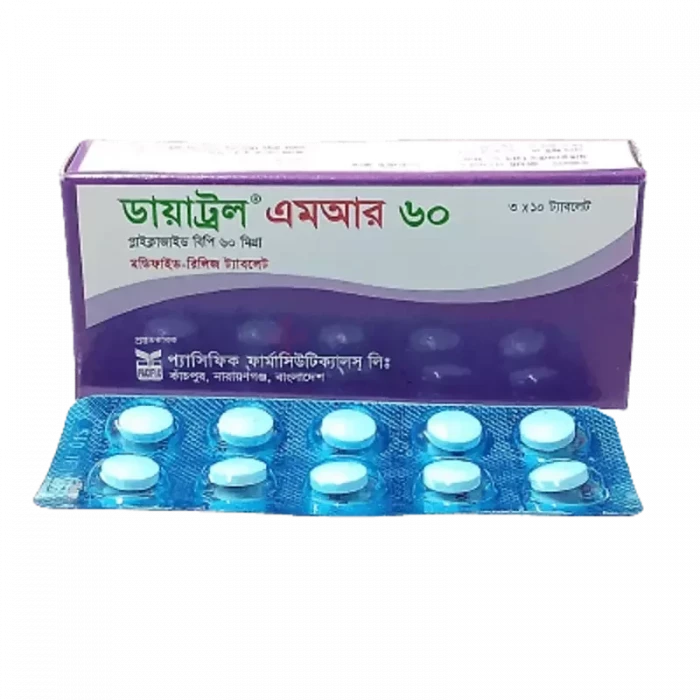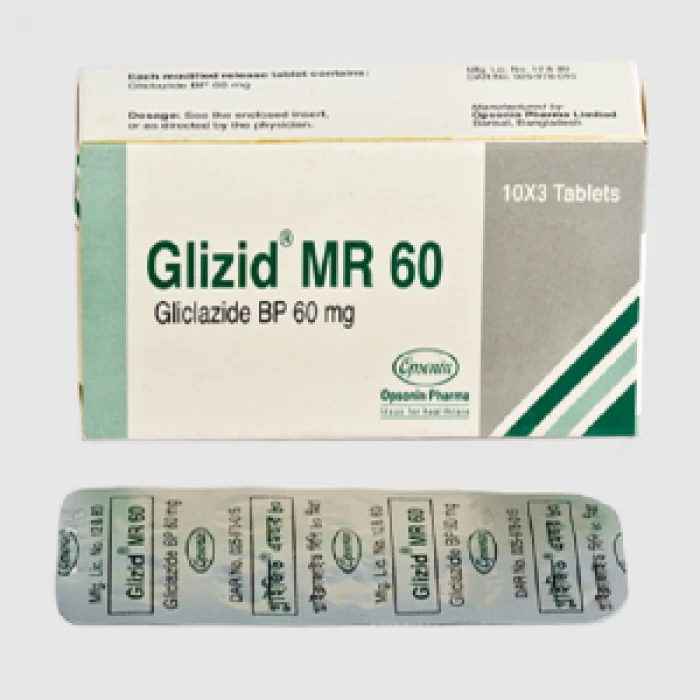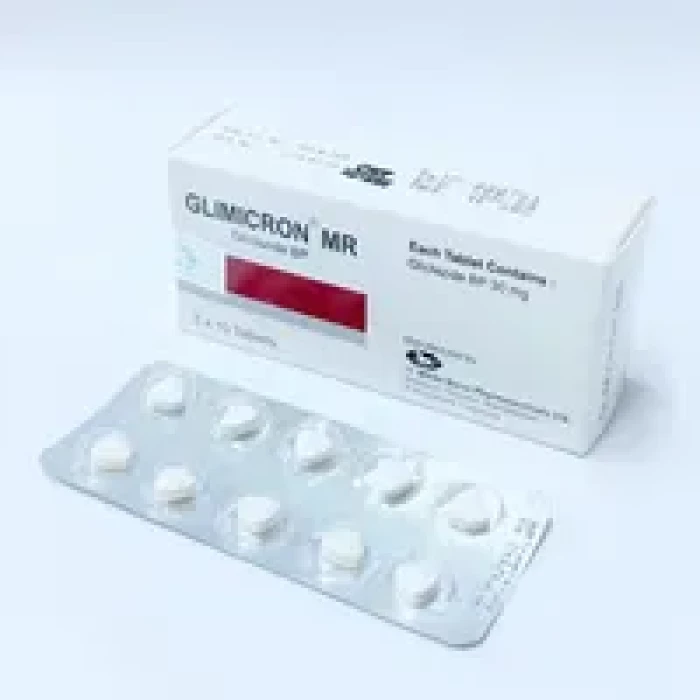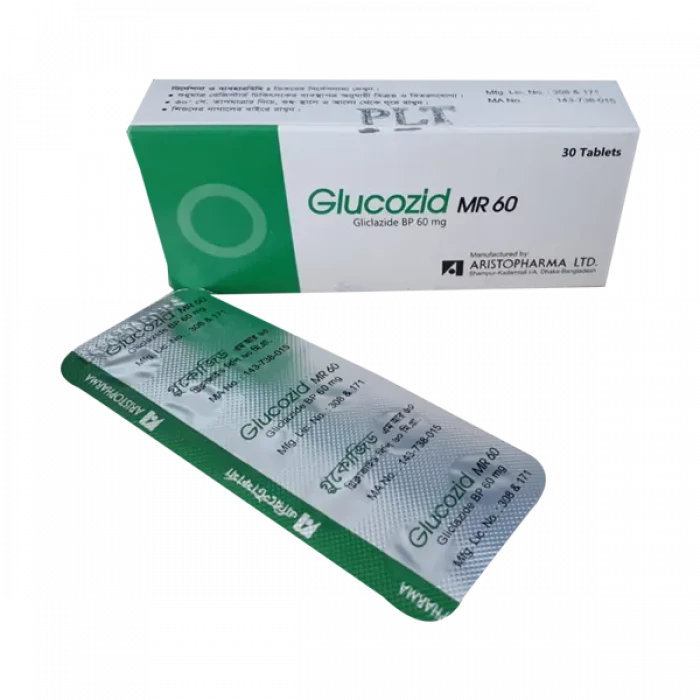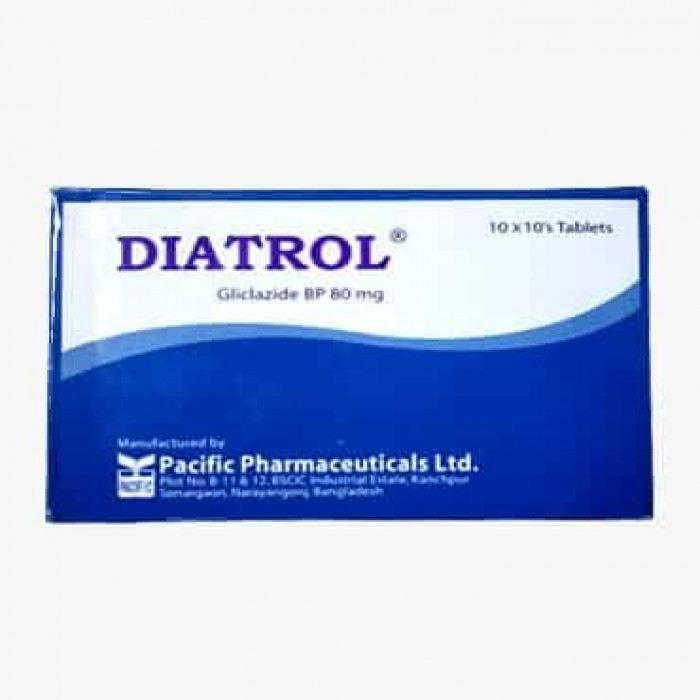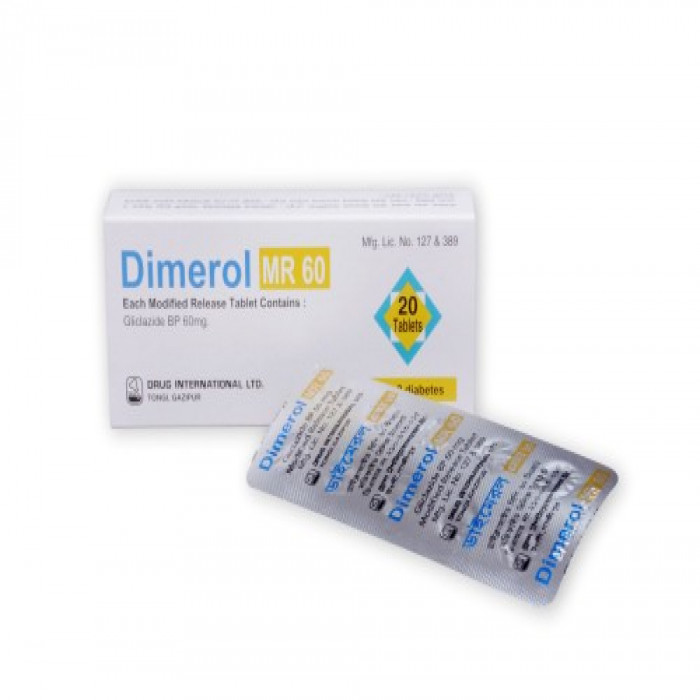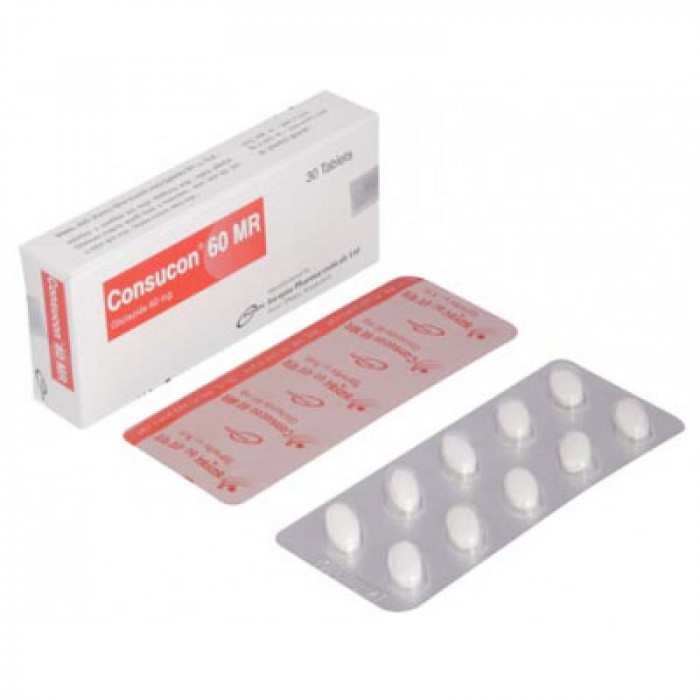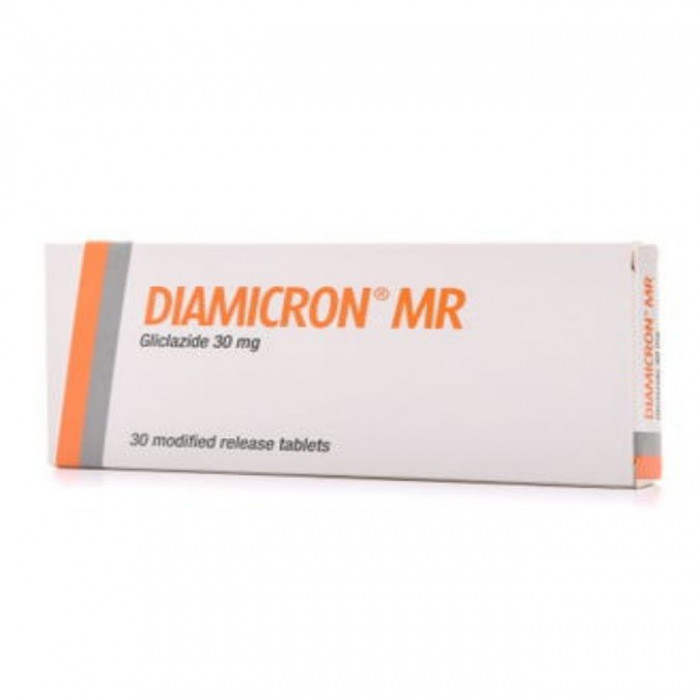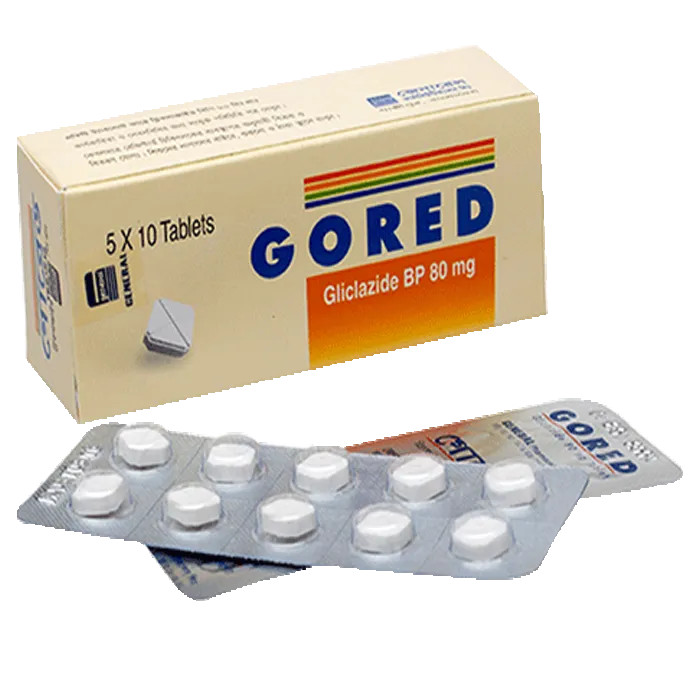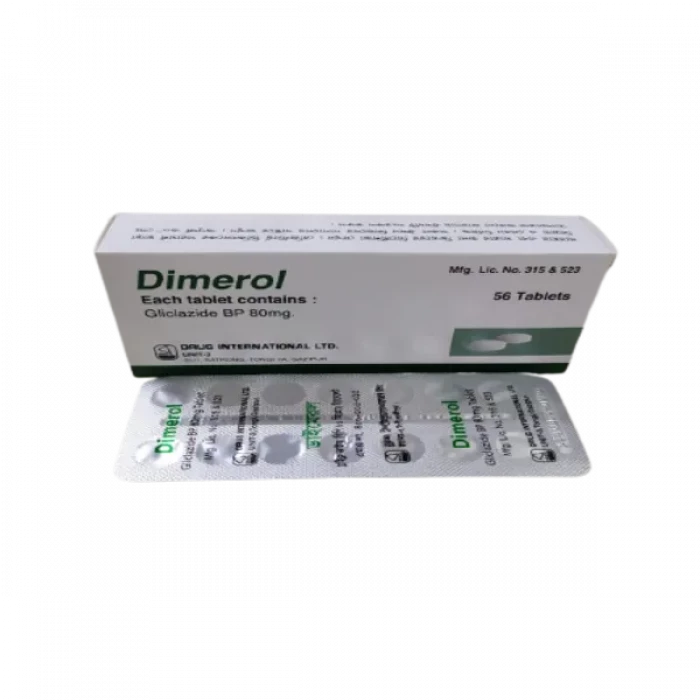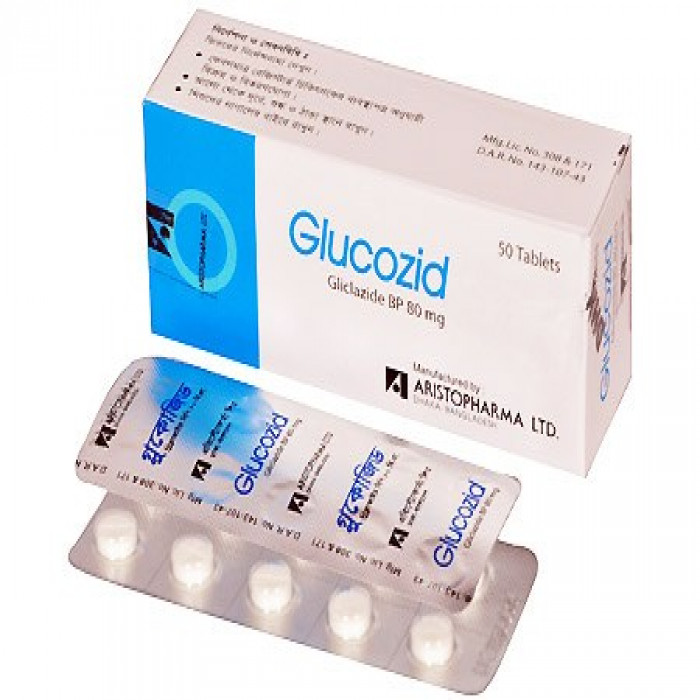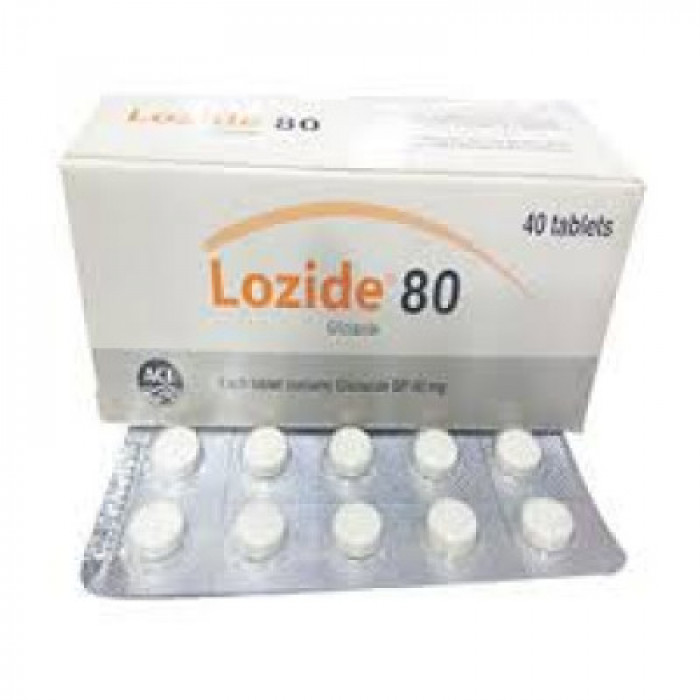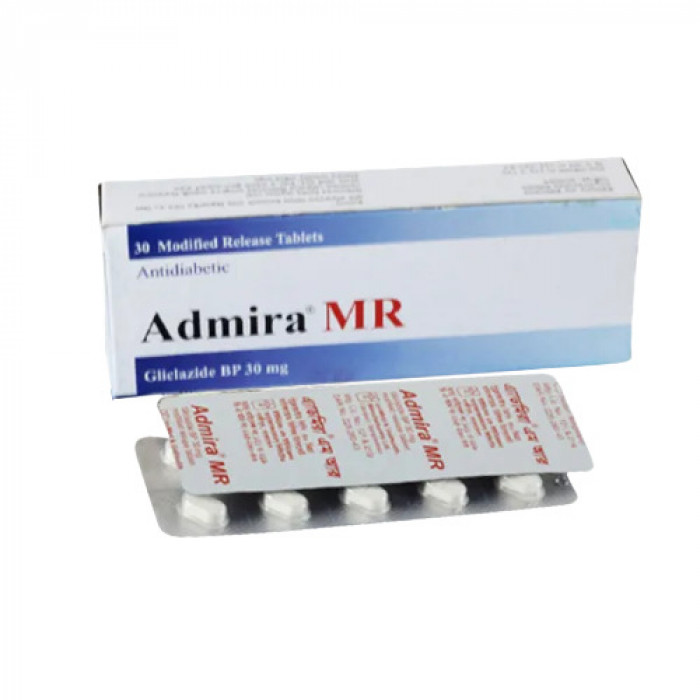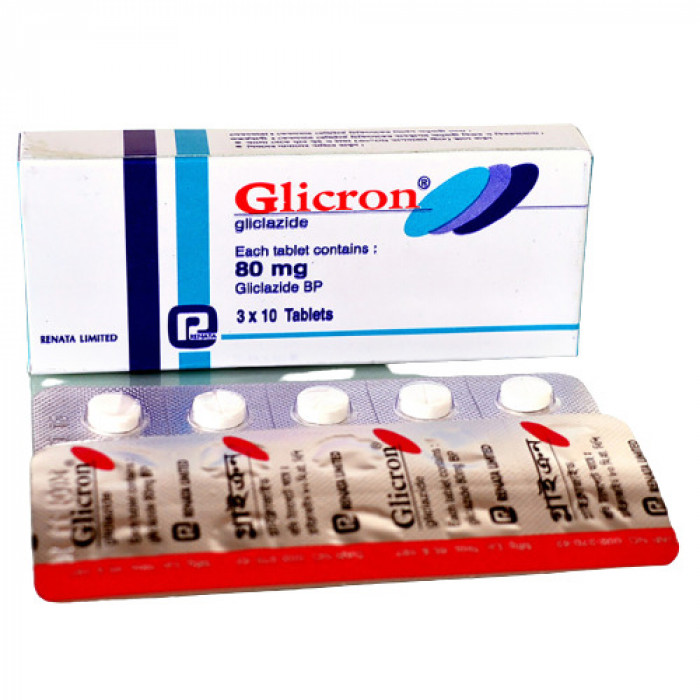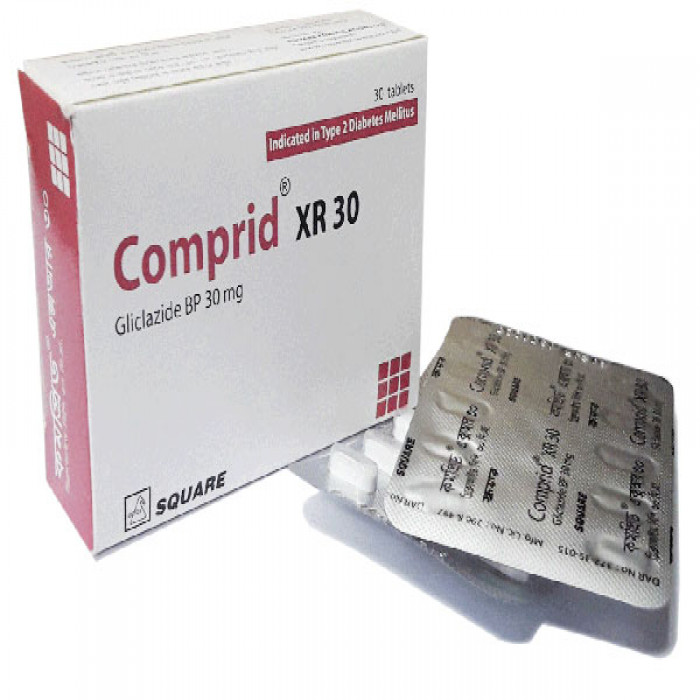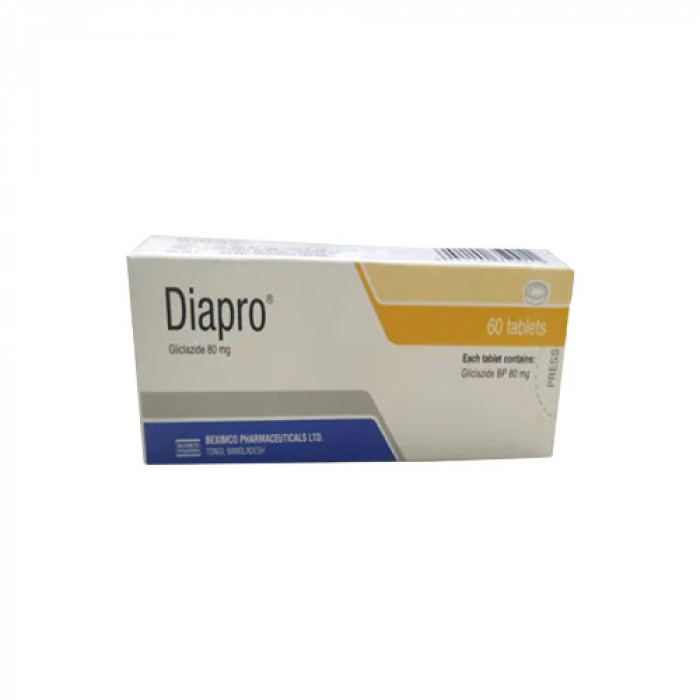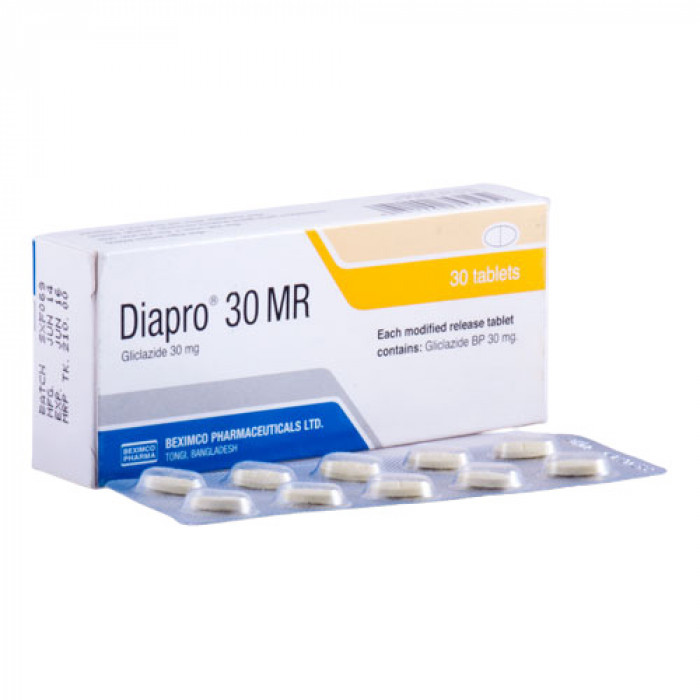Due to National Election, orders may be processed slight delay, nationwide.
Leading Online Pharmacy of Bangladesh
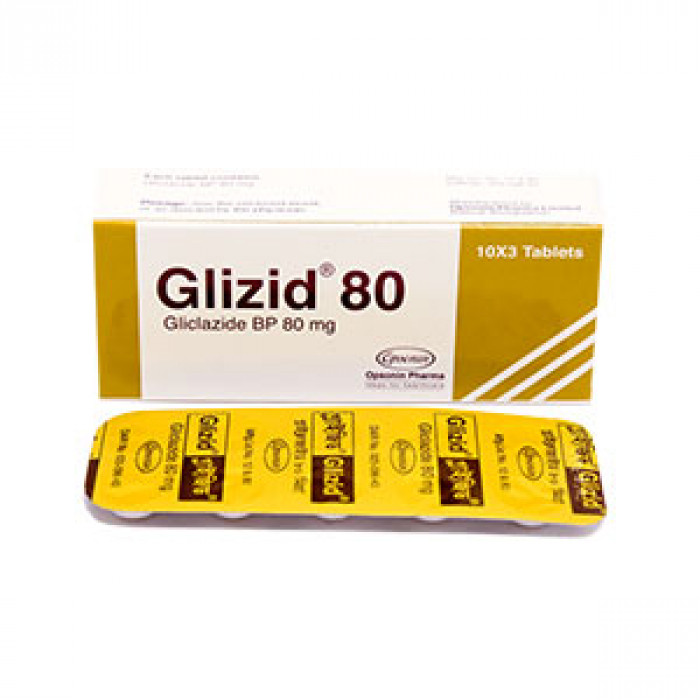
✔ 100% Authentic Product
👁️ Currently Viewing 1917
Glizid 80mg Tablet 1 Strip
Gliclazide, a second-generation sulfonylurea, works by stimulating insulin secretion from pancreatic β-cells through enhanced calcium ion transport across cell membranes. Additionally, it reduces hepatic glucose production and may offer hematological benefits.
Discount
Price: ৳ 76
MRP:
৳
80
5%
Off

100% Genuine Products, Guaranteed

Safe & Secure Payments, Always

Fast, Secure & Efficient Delivery

Proper Packaging
 Cash on Delivery - All over Bangladesh
Cash on Delivery - All over Bangladesh Regular Delivery - 12-24 Hours, Dhaka City* Charge Tk.39-59
Regular Delivery - 12-24 Hours, Dhaka City* Charge Tk.39-59 Regular Delivery - 24-48 Hours, Other Cities* Charge Tk.99-110
Regular Delivery - 24-48 Hours, Other Cities* Charge Tk.99-110
 ফ্রি ডেলিভারিঃ - ৯৯৯ টাকা+ অর্ডারে, ঢাকা
শহরে
ফ্রি ডেলিভারিঃ - ৯৯৯ টাকা+ অর্ডারে, ঢাকা
শহরে ফ্রি ডেলিভারিঃ - ২৯৯৯ টাকা+ অর্ডারে, ঢাকার
বাহিরে
ফ্রি ডেলিভারিঃ - ২৯৯৯ টাকা+ অর্ডারে, ঢাকার
বাহিরে
100% Genuine Products, Guaranteed
Safe & Secure Payments, Always
Fast, Secure & Efficient Delivery
Proper Packaging
 Cash on Delivery - All over Bangladesh
Cash on Delivery - All over Bangladesh Regular Delivery - 12-24 Hours, Dhaka City* Charge Tk.39-59
Regular Delivery - 12-24 Hours, Dhaka City* Charge Tk.39-59 Regular Delivery - 24-48 Hours, Other Cities* Charge Tk.99-110
Regular Delivery - 24-48 Hours, Other Cities* Charge Tk.99-110 ফ্রি ডেলিভারিঃ - ৯৯৯ টাকা+ অর্ডারে, ঢাকা
শহরে
ফ্রি ডেলিভারিঃ - ৯৯৯ টাকা+ অর্ডারে, ঢাকা
শহরে ফ্রি ডেলিভারিঃ - ২৯৯৯ টাকা+ অর্ডারে, ঢাকার
বাহিরে
ফ্রি ডেলিভারিঃ - ২৯৯৯ টাকা+ অর্ডারে, ঢাকার
বাহিরে
✅ Description:
Glizid is an oral medication from the sulfonylurea class, designed to lower blood sugar levels. It is prescribed for managing type 2 diabetes mellitus in adults when diet, exercise, and weight management alone are insufficient for maintaining proper glucose control.
- Take Glizid 80 mg Tablet exactly as prescribed by your doctor, including the dosage and frequency.
- It should be taken orally, ideally 30 minutes before breakfast.
- Regularly monitor your blood sugar levels as advised by your doctor.
- Always carry a sugary snack to counteract low blood sugar (hypoglycemia). Maintaining a consistent diet can help minimize the risk of hypoglycemia.
✔️ Dosage & Administration:
- Film-coated tablets: The standard starting dose is 40 to 80 mg per day, which may be increased to a maximum of 320 mg daily, divided into multiple doses as needed. It should be taken before meals. This medication is not recommended for children due to its contraindications in juvenile diabetes.
- Modified-release tablets: The prescribed dosage is determined by the doctor based on blood sugar levels. Generally, the recommended intake ranges from one to four tablets (maximum 120 mg) once daily at breakfast. The tablet should be swallowed whole with water, without chewing or crushing. A meal must always be consumed after taking the medication.
If Glizid is used alongside metformin, alpha-glucosidase inhibitors, thiazolidinediones, DPP-4 inhibitors, GLP-1 receptor agonists, or insulin, the doctor will adjust the dosage accordingly. In case of persistently high blood sugar despite proper medication use, consult a healthcare professional.
✔️ Possible Side Effects:
While generally well-tolerated, some individuals may experience:
⚠️ Common Side Effects:
- Hypoglycemia (low blood sugar) – Symptoms include sweating, dizziness, confusion, tremors, blurred vision, and irritability. If untreated, it may lead to loss of consciousness or coma. Immediate intake of sugar is recommended.
- Digestive issues – Nausea, vomiting, diarrhea, constipation, or indigestion (reduced when taken with food).
⚠️ Serious Side Effects (Seek Medical Attention):
- Liver disorders – Uncommon cases of jaundice (yellowing of skin and eyes).
- Severe skin reactions – Rash, redness, itching, hives, blisters, or swelling of the face, lips, tongue, or throat (angioedema).
- Blood disorders – A decrease in platelets, red or white blood cells, potentially causing paleness, prolonged bleeding, bruising, sore throat, or fever.
Rarely, severe allergic reactions with flu-like symptoms and widespread skin rash may occur. If any severe reactions develop, discontinue use and seek medical help immediately.
✔️ Overdose Management:
Consuming an excessive dose may result in hypoglycemia (low blood sugar), characterized by weakness, dizziness, confusion, sweating, tremors, or fainting. Immediate action should be taken by consuming sugar (e.g., glucose tablets, sugary drinks) followed by a balanced meal. If severe symptoms, unconsciousness, or accidental ingestion occurs (especially in children), emergency medical assistance should be sought promptly. Unconscious individuals should not be given food or drink.
✔️ Missed Dose:
If a dose is missed, take the next dose at the usual time. Do not double the dose to compensate for the missed one.
✔️ Stopping Treatment:
Since diabetes management is long-term, discontinuation should be done under medical supervision. Stopping treatment abruptly may cause high blood sugar (hyperglycemia) and increase the risk of diabetes-related complications.
✔️ Certain medications can either enhance or weaken Glizid’s blood sugar-lowering effect:
✅ Medications that enhance Glizid’s effect (higher risk of hypoglycemia):
- Other antidiabetic drugs (insulin, GLP-1 receptor agonists, etc.)
- Antibiotics (sulfonamides, clarithromycin)
- Blood pressure and heart failure medications (beta-blockers, ACE inhibitors)
- Antifungal drugs (miconazole, fluconazole)
- Anti-ulcer medications (H2 receptor antagonists)
- Antidepressants (monoamine oxidase inhibitors)
- Pain relievers/anti-inflammatory drugs (phenylbutazone, ibuprofen)
- Alcohol-containing medicines
✔️ ❌ Medications that reduce Glizid’s effectiveness (higher risk of hyperglycemia):
- Antipsychotics (chlorpromazine)
- Corticosteroids (anti-inflammatory drugs)
- Asthma and labor-inducing medications (intravenous salbutamol, ritodrine, terbutaline)
- Hormonal treatments (danazol)
- St. John’s Wort (Hypericum perforatum)
Additionally, fluoroquinolone antibiotics can cause fluctuations in blood sugar levels, especially in elderly patients. Glizid may also enhance the effect of blood-thinning medications (warfarin). Always inform your doctor before starting or stopping any medication.
✔️ Food & Drink Considerations:
- Glizid should be taken with food and non-alcoholic beverages.
- Alcohol consumption is not recommended, as it may unpredictably affect blood sugar control.
✔️ Glizid should not be used if you
❌ Are allergic to gliclazide, sulfonylureas, or sulfonamide-based drugs
❌ Have type 1 diabetes
❌ Have diabetic ketoacidosis, diabetic coma, or pre-coma
❌ Have severe kidney or liver disease
❌ Are taking certain antifungal medications
❌ Are pregnant or breastfeeding
✔️ Precautions While Driving or Operating Machinery:
- If blood sugar levels fluctuate (too low or too high), concentration and reaction time may be affected.
- Consult a doctor before driving if you experience frequent hypoglycemic episodes or have reduced awareness of low blood sugar symptoms.
✔️ Pregnancy & Breastfeeding:
- Not recommended during pregnancy. If planning a pregnancy or are already pregnant, consult your doctor.
- Avoid use while breastfeeding, as it may pass into breast milk.
✔️ Precautions & Warnings:
- Follow your prescribed treatment plan, including medication, diet, exercise, and weight control.
- Monitor blood sugar levels regularly (via blood/urine tests and HbA1c checks).
- Be cautious in the first few weeks of treatment, as the risk of hypoglycemia may be higher.
- Carry glucose tablets or sugar at all times to manage sudden drops in blood sugar.
✔️ Storage Guidelines:
- Keep out of reach of children.
- Store at temperatures below 30°C.
- Do not use it after the expiry date mentioned on the packaging.
- Dispose of expired or unused medication properly—consult a pharmacist for safe disposal methods.
⚠️Disclaimer:
At ePharma, we’re committed to providing accurate and accessible health information. However, all content is intended for informational purposes only and should not replace medical advice from a qualified physician. Please consult your healthcare provider for personalized guidance. We aim to support, not substitute, the doctor-patient relationship.




